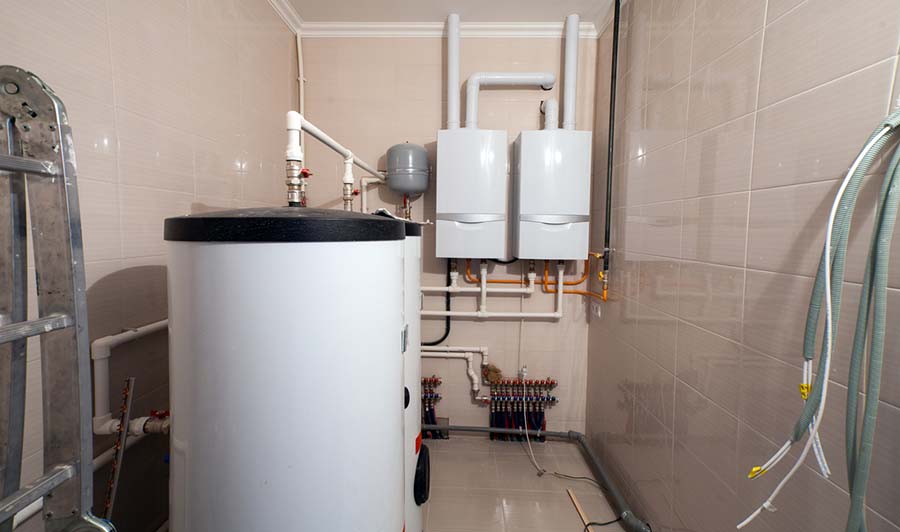This post which follows relating to Is Your Water Heater Leaking? is immensely remarkable. Give it a try and make your own findings.

A hot water heater is one of the most vital basic home appliances that can be located in a house. With hot water heater, you do not need to go through the anxiety of home heating water by hand every time there is a requirement to take a bath, do the laundry, or the dishes. There is constantly a possibility that your water heating system would certainly act up as with a lot of mechanical gadgets.
It is necessary to keep in mind any type of little breakdown and tackle it rapidly prior to points get out of hand. The majority of times, your water heater starts to malfunction when there is a build-up of debris as a result of continual use. As a precaution, regular flushing of your water heater is recommended to stop sediment build-up as well as avoid useful failure.
Usual water heater emergency situations and just how to handle them
Inadequate hot water
It may be that the water heating system can not support the warm water need for your apartment or condo. You could upgrade your water heater to one with a bigger capacity.
Fluctuating water temperature level.
Your water heating system might begin creating water of various temperatures normally ice cool or scalding warm. There might be a requirement to replace either the home heating or the thermostat device of your water heating system.
Leaking water heater storage tank.
In this circumstance, you must transform off your water heating unit, enable it to cool down, as well as very carefully look for the source of the problem. At times, all you need to do is to tighten up a couple of screws or pipe connections in cases of small leaks. If this doesn't work and also the leakage persists, you could require to employ the solutions of a professional for a proper replacement.
Blemished or stinky water
You require to understand if the concern is from the tank or the water source when this occurs. If there is no amusing odor when you run cold water, then you are certain that it is your hot water heater that is defective. The odiferous water can be brought on by rust or the build-up of germs or debris in the hot water heater container. As soon as you see this, you can try flushing out your tank or replacing the anode if the problem persists. The function of the anode is to clean out bacteria from your container. Given that the anode pole replacement requires an extensive knowledge of your water heating system, you will certainly need the help of a specialist.
Conclusion
Some property owners neglect little warning and minor faults in their hot water heater unit. This just brings about further damages as well as a feasible total breakdown of your device. You ought to manage your water heater mistakes as quickly as they come near avoid more costs as well as unneeded emergency difficulties.
With water heating systems, you do not require to go with the stress and anxiety of home heating water manually every time there is a need to take a bath, do the washing, or the meals. It may be that the water heater can not support the warm water need for your house. Your water heater can start generating water of different temperatures normally ice scalding or cool hot. If there is no amusing smell when you run cool water, then you are particular that it is your water heater that is faulty. The smelly water can be caused by corrosion or the accumulation of bacteria or debris in the water heating unit storage tank.
Common Water Heater Issues and What You Should Do
What Type of Water Heater Do You Have?
Before we begin it’s first important that you identify the type of water heater you have on your property. There are two main types of water heaters out there: conventional and high efficiency.
Both of these types of products typically use either gas or electricity to heat power. There are also solar water heaters that use a thermal collector on the roof or yard to heat the water.
While these models are not as common, they can cut heating costs in half. In this article, we will focus on conventional and high efficiency.
How Do My Electric and Gas Water Heater Work?
Though they look similar, electric and gas water heaters work very differently. It’s important to know their basic function because often problems can be specific to the heating source.
In the electric model, a thermostat on the side of the machine detects the temperature of the water in the tank. When the temperature needs to rise electricity flows to a heating element suspended in the water.
Gas models also use a thermostat device — typically with a mercury sensor at the tip and an additional sensor called a thermocouple. The thermocouple detects whether the pilot light is on and controls the flow of gas.
When the thermostat drops below the appropriate level gas is released which becomes ignited by the pilot light. The flame heats the bottom of the water tank which causes hot water to rise and cold water to drop.
This natural circulation continues until the water reaches the desired temperature. Then, the thermostat triggers the gas control valve to shut off the flow of gas.
What Are the Most Common Issues and How Do You Fix Them?
https://happyhiller.com/blog/common-water-heater-issues-and-what-you-should-do/

We had been shown that report about Is Your Water Heater Leaking? through a friend on our other web address. Make sure you set aside a second to promote this page if you enjoyed reading it. Thank you for your time. Don't forget to check up our site back soon.
24-hour help? Dial!